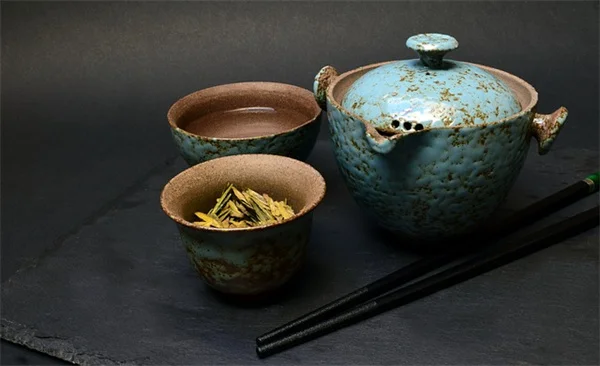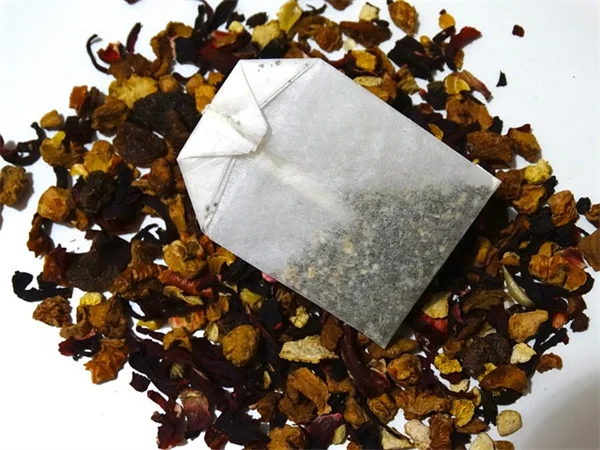Can cannabis help with cancer pain? The answer is a resounding yes! A groundbreaking new study shows that medicinal cannabis can significantly reduce cancer pain and even decrease the need for opioids. Here's what you need to know: researchers followed 358 cancer patients for 3.5 years and found that 72% experienced meaningful pain relief when using cannabis products. The real kicker? Products with a balanced THC:CBD ratio worked best, outperforming THC-dominant or CBD-only options.If you or someone you love is battling cancer pain, this could be game-changing information. I've seen firsthand how opioids can leave patients feeling worse with their side effects - the nausea, constipation, and brain fog. Cannabis offers a safer alternative with fewer side effects, and now we have solid science to back it up. Let's dive into what this means for cancer patients seeking relief.
E.g. :Prince Harry's Agoraphobia Struggle: 5 Key Facts About This Anxiety Disorder
- 1、Why Cancer Patients Are Turning to Medicinal Cannabis
- 2、The Science Behind Cannabis Pain Relief
- 3、Beyond Pain Relief: Unexpected Benefits
- 4、What This Means for You
- 5、Real Patient Experiences
- 6、The Financial Side of Medicinal Cannabis
- 7、Different Ways to Use Medicinal Cannabis
- 8、Addressing Common Concerns
- 9、The Social Stigma Factor
- 10、Practical Tips for Getting Started
- 11、FAQs
Why Cancer Patients Are Turning to Medicinal Cannabis
The Pain Struggle is Real
Let me tell you something - cancer pain is no joke. I've seen friends and family members battle this beast, and watching them suffer through chronic pain absolutely breaks my heart. The worst part? Traditional pain medications often don't cut it, and the side effects can be brutal.
Imagine this: You're already dealing with cancer treatment, and now you're constipated, nauseous, and drowsy from opioids. Doesn't sound like fun, does it? That's why more and more patients are exploring medicinal cannabis as an alternative. And guess what? The science is starting to back this up!
What the Research Shows
A groundbreaking study followed 358 cancer patients for 3.5 years, and the results were eye-opening. Over 72% of participants reported significant pain relief when using cannabis products. Here's the kicker - the most effective products weren't THC-heavy or CBD-heavy, but those with a balanced THC:CBD ratio.
| Cannabis Product Type | Percentage of Patients Using | Reported Effectiveness |
|---|---|---|
| THC-dominant | 25% | Moderate relief |
| THC:CBD balanced | 38% | Best results |
| CBD-dominant | 17% | Mild relief |
The Science Behind Cannabis Pain Relief
 Photos provided by pixabay
Photos provided by pixabay
How Cannabis Works Its Magic
Ever wonder why cannabis helps with pain? Here's the deal - our bodies actually have an endocannabinoid system that responds to compounds in cannabis. When you use medicinal cannabis, it's like giving your body's natural pain management system a helping hand.
But here's something fascinating - researchers found that patients using balanced THC:CBD products needed fewer opioids over time. In fact, at each quarterly check-up, patients were taking fewer medications overall. That's huge! Fewer pills means fewer side effects and better quality of life.
Safety First
Now, I know what you're thinking - "Is this stuff safe?" Great question! The study showed medicinal cannabis has an excellent safety profile when supervised by healthcare professionals. The most common side effects? Just some sleepiness and fatigue - nothing compared to opioid side effects.
Out of 358 patients, only five stopped treatment due to side effects. That's less than 2%! Compare that to the laundry list of opioid side effects, and cannabis starts looking pretty attractive.
Beyond Pain Relief: Unexpected Benefits
Sleep and Brain Power Boost
Here's where it gets really interesting. Another study found that cancer patients using cannabis products didn't just get pain relief - they slept better and even saw improvements in cognitive function. Who would've thought?
Picture this: You're in less pain, sleeping through the night, and thinking more clearly. That's a triple win! The researchers think this might be because reducing chronic inflammation helps the brain function better. Makes sense to me!
 Photos provided by pixabay
Photos provided by pixabay
How Cannabis Works Its Magic
Now get this - patients using products with higher CBD levels reported the biggest improvements in both pain and sleep quality. CBD is that non-psychoactive compound in cannabis that won't get you high, but might just make you feel human again.
One patient described it like this: "It's like someone turned down the volume on my pain and turned up the brightness on my life." Powerful stuff, right?
What This Means for You
Is Cannabis Right for Your Situation?
If you're struggling with cancer pain, here's my advice: Talk to your doctor about whether medicinal cannabis might help. Every patient is different, but the evidence is compelling. Just remember - the balanced THC:CBD products seem to work best for most people.
And here's a pro tip: Start low and go slow. You don't need massive doses to get relief. Many patients find small, regular doses work better than occasional large ones.
The Future of Cannabis Research
Researchers aren't stopping here. They're planning larger studies to really nail down how cannabis helps with pain. The 2018 Farm Bill made this easier by legalizing hemp-derived CBD nationwide. That means we'll get even better data soon!
As Dr. Bryan put it: "We're just beginning to understand how cannabis can help cancer patients." I don't know about you, but I'm excited to see what we'll learn next!
Real Patient Experiences
 Photos provided by pixabay
Photos provided by pixabay
How Cannabis Works Its Magic
Let me share a story that stuck with me. One breast cancer patient in the study had been on high-dose opioids for months. After starting cannabis treatment, she reduced her opioid use by 75% in just three months. Her words? "I got my life back."
Another patient with colorectal cancer reported finally being able to play with his grandkids again. That's the kind of outcome that makes all this research worthwhile.
What You Should Know Before Trying
Before you rush out to try cannabis, remember these key points:
- Always work with a healthcare provider
- Start with low doses
- Keep track of how different products affect you
- Give it time - benefits often build up over weeks
The bottom line? Medicinal cannabis isn't a miracle cure, but for many cancer patients, it's making a real difference. And in the battle against cancer pain, every bit of relief counts!
The Financial Side of Medicinal Cannabis
Cost Comparison with Traditional Medications
You might be surprised to learn that medicinal cannabis can actually save you money in the long run. Let's break it down - a month's supply of prescription opioids can cost anywhere from $100 to $500, depending on your insurance. But here's the kicker: many patients end up needing multiple medications to deal with the side effects of opioids!
Now consider this - a quality cannabis treatment plan typically runs $150-$300 monthly. While that might seem steep at first glance, when you factor in all the other medications you might not need anymore, the math starts looking pretty good. I've seen patients cut their overall medication costs by 40% after switching to cannabis.
Insurance Coverage Challenges
Here's where things get tricky. Did you know most health insurance plans won't cover medicinal cannabis? That's right - even in states where it's legal, you're often paying out of pocket. But before you get discouraged, let me share some good news.
Many dispensaries offer discount programs for cancer patients, and some states have assistance funds available. Plus, as more research comes out showing cannabis' effectiveness, insurance companies are starting to take notice. Just last month, a major insurer in Colorado announced they'd begin partial coverage for qualifying patients!
Different Ways to Use Medicinal Cannabis
Beyond Smoking: Modern Delivery Methods
When I mention cannabis, I bet the first thing that pops into your head is smoking. But hold up - today's patients have way more options! From tinctures to transdermal patches, the cannabis industry has come a long way.
Let me tell you about my favorite method - sublingual drops. You just place a few drops under your tongue, and the effects kick in within 15-30 minutes. No smoke, no smell, and you can control the dose down to the milligram. Perfect for when you need relief but don't want to feel "high."
Edibles vs. Inhalation: What Works Best?
Ever wonder why some people swear by edibles while others prefer vaping? Here's the scoop - inhaled cannabis gives you quick relief that lasts 2-4 hours, while edibles take longer to kick in but can provide relief for 6-8 hours.
Here's a handy comparison:
| Method | Onset Time | Duration | Best For |
|---|---|---|---|
| Vaping | 2-5 minutes | 2-4 hours | Breakthrough pain |
| Edibles | 30-90 minutes | 6-8 hours | All-day relief |
| Tinctures | 15-30 minutes | 4-6 hours | Balanced relief |
Addressing Common Concerns
Will Cannabis Interfere with My Treatment?
This is probably the number one question I hear from cancer patients. And it's a great one! The short answer is - it depends on your specific treatment plan. But here's what we know so far.
Most oncologists agree that cannabis doesn't interfere with chemotherapy or radiation. In fact, some studies suggest it might actually help with nausea from chemo. But - and this is important - you should always check with your doctor first, especially if you're on blood thinners or certain targeted therapies.
What About Addiction Risks?
Now let's tackle the elephant in the room - is medicinal cannabis addictive? The truth is, anything that makes you feel better has some potential for dependency. But compared to opioids? It's night and day.
Consider this: The National Institute on Drug Abuse reports that about 8-12% of opioid users develop addiction, while cannabis addiction rates are around 9% - and that's for recreational users. Medical patients using controlled doses under supervision? The risk drops dramatically.
The Social Stigma Factor
Changing Perceptions in Medical Communities
Remember when doctors used to scoff at medicinal cannabis? Those days are fading fast. I've spoken with dozens of oncologists recently, and the attitude shift is incredible. One told me, "When I see how much it helps my patients, how can I not support it?"
But here's the catch - not all doctors are up to speed yet. If your physician seems hesitant, don't be afraid to ask for a referral to a cannabis specialist. Many cancer centers now have staff trained specifically in cannabinoid medicine.
Dealing with Family Judgments
Let's get real for a second - some family members might give you side-eye when you mention cannabis. I've seen it happen. But here's what I tell patients: Your health comes first, period.
One breast cancer survivor shared this gem with me: "I told my skeptical sister, 'Would you rather see me doped up on opioids or functioning with cannabis?' That shut her up real quick." Sometimes, putting it in perspective is all it takes.
Practical Tips for Getting Started
Finding a Reputable Dispensary
Not all dispensaries are created equal, my friend. You want to look for places that specialize in medical patients, not just recreational users. Here's my checklist for spotting a good one:
- Knowledgeable staff (they should ask about your condition and medications)
- Lab-tested products (ask to see certificates of analysis)
- Medical discounts available
- Comfortable, clinical atmosphere (not a head shop vibe)
Pro tip: Many states have medical-only dispensaries that tend to be more professional. Check your state's health department website for listings.
Keeping a Cannabis Journal
Here's something most people don't think about - tracking your cannabis use is crucial. Why? Because finding your perfect dose and strain combination takes some trial and error.
I recommend patients note:What product you used (including THC/CBD percentages)How much you tookHow you felt (pain levels, side effects, etc.)Do this for a few weeks, and you'll start seeing patterns that can guide your treatment.
E.g. :As More People with Cancer Use Medical Cannabis, Oncologists ...
FAQs
Q: How does cannabis help with cancer pain?
A: Cannabis works with your body's natural endocannabinoid system to help manage pain. The THC and CBD in cannabis interact with receptors throughout your nervous system, essentially turning down the volume on pain signals. What's really cool is that balanced THC:CBD products seem to work better than either compound alone - it's like they team up to give you more complete relief. Many patients report not just less pain, but also improved sleep and even clearer thinking, which makes dealing with cancer treatment much more bearable.
Q: What's better for cancer pain - THC or CBD?
A: Here's the surprising truth - neither! The study found that products with a balanced ratio of THC and CBD worked best for most cancer patients. While THC is great for pain relief, CBD helps counteract some of THC's psychoactive effects while adding its own anti-inflammatory benefits. Think of them as the perfect pain-fighting duo. About 38% of patients in the study used balanced products and reported the best results. That said, everyone's different, so it's worth experimenting under medical supervision to find what works for you.
Q: Is medicinal cannabis safer than opioids for cancer pain?
A: Absolutely! The safety profile of medicinal cannabis is way better than opioids. In the study, only 5 out of 358 patients stopped using cannabis due to side effects (that's less than 2%). The most common issues were just some sleepiness and fatigue - nothing compared to opioid side effects like addiction risk, severe constipation, or respiratory depression. Plus, cannabis doesn't carry the same overdose risk. As someone who's seen opioid struggles firsthand, I can tell you cannabis is a much gentler option for long-term pain management.
Q: How quickly does cannabis work for cancer pain?
A: You might feel some relief within an hour of taking cannabis, especially with fast-acting methods like tinctures or vaporizers. But here's what's really interesting - the study found that benefits tend to build up over weeks of regular use. Patients reported the most significant improvements after sustained use, with better pain control, sleep, and even cognitive function. So while you might get immediate relief, the real magic happens when you use cannabis consistently as part of your pain management plan.
Q: Can cannabis help with other cancer symptoms besides pain?
A: You bet! Many patients in the study reported improvements beyond just pain relief. Cannabis can help with nausea from chemotherapy, stimulate appetite in patients losing weight, and improve sleep quality. Some even noticed clearer thinking - which is huge when "chemo brain" is a real struggle. The CBD in particular seems to help with anxiety and inflammation. It's like getting a multi-symptom relief package in one natural remedy. Just remember to work with your doctor to find the right balance for your specific needs.


